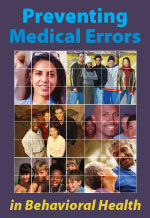Professional Development Resources RiskManagementEducationOnline, a nationally accredited provider of continuing education (CE) for psychologists, social workers, counselors, and marriage and family therapists, has announced the release of a new continuing education course on realistic risk management for mental health professionals.
Jacksonville, FL (Vocus/PRWEB ) August 1, 2009 — Professional Development Resources, RiskManagementEducationOnline has released a new continuing education course that details the real risks of practicing in mental health professions, along with strategies for anticipating and minimizing risks. Areas of special emphasis include the impact of managed care and the complex interaction of new HIPAA regulations with legal and ethical considerations. The six-hour course, which is available online, makes the case that there are real risks associated with independent practice, but that most risky situations can be managed with thoughtful clinical decision making and careful attention to detail in day-to-day clinical practice.
The average mental health practitioner in independent practice who belongs to a managed care organization (MCO) must perform a balancing act, attempting to attend to and satisfy the requirements of half a dozen entities. These include the practitioner’s own profession (code of ethics), state licensure laws and rules, federal regulations (HIPAA privacy laws), the MCO’s limitations and guidelines, local standards of practice, and a variety of state and national child abuse and ‘duty to protect’ laws. Sometimes the requirements are inconsistent – or even in conflict – with each other, and the clinician must unravel the tangles in order to discern the ethical and legal course of action.
It may seem ironic that those who practice in the helping professions have to be so aware of practicing defensively. Most of the people who complete lengthy training programs to become psychotherapists do so because of a desire to help people. Yet, over the last 10 years, there has been a major increase in the number of lawsuits, licensing board actions, and ethics complaints against mental health practitioners. How has this need for defensive practice come about?
There seem to be a number of contributing factors. Changes in the economic system, the growth of managed care, increased federal and state regulations, advancing technology, and greater demands for oversight and accountability in clinical practice have made record keeping and communications much more complex, time consuming, and risky. Many clinicians are frustrated by the extra work they must do to satisfy the complex – and sometimes contradictory – demands of regulators and insurers. This CE program offers practical take-home tools for minimizing risk and covering one’s assets, associates, and actions.
“One cannot insure against or prevent all risks. That is why it is called risk management, and not risk prevention,” says Ed Zuckerman, PhD, clinical psychologist and author of the course. “There are very real emotional, personal, and financial costs involved in licensing board complaints and malpractice suits. Risk management involves reducing the potential impacts by reducing the levels of threat, vulnerability, and likelihood at the lowest cost or effort.”
One of the unique aspects of this course is that it gives the reader the opportunity to estimate his or her own individual risk of being the target of a licensing board complaint or malpractice suit. Based on the real occurrence of complaints and lawsuits brought against individuals in each particular profession, the author guides the reader through a mathematical probability sequence that results in a realistic risk self-assessment. The reader can then implement specific strategies designed to reduce his or her individual risk.
“I have never seen such an inclusive collection of rational strategies, thoughtful analyses, and ready-to-use tools brought together in one place before,” says Leo Christie, PhD, CEO of Professional Development Resources. “Independent practice has become more risky, and many clinicians have not adapted. What are the real-life risks? What constitutes ‘standard of care?’ How long do we have to keep clinical records? How can we be sure that electronic records are secure and confidential? We can all learn how to protect our clients and ourselves by implementing changes that are surprisingly simple.”
The new risk management course and a number of others – all of which are available instantly online and can be completed any time and anywhere – include:
Realistic Risk Management, (2009) 85 pages, HIPAA Help: A Compliance Manual for Psychotherapists, (2009) 263 pages, Ethics & Risk Management: Expert Tips I, (2008) 22 pages, and
Ethics & Risk Management: Expert Tips II, (2009) 26 pages.
About Professional Development Resources, Inc.
Professional Development Resources is a Florida nonprofit educational corporation founded in 1992 by licensed marriage and family therapist Leo Christie, PhD. The company, which is accredited by the American Psychological Association (APA), the Association of Social Work Boards (ASWB), the National Board for Certified Counselors (NBCC), the American Speech-Language-Hearing Association (ASHA), the American Occupational Therapy Association (AOTA) – as well as many other national and state boards – has focused its efforts on making continuing education courses more efficient and widely accessible to health professionals by offering online home study coursework. Its current expanded curriculum includes a wide variety of clinical topics intended to equip health professionals to offer state-of-the art services to their clients.
Contact:
Professional Development Resources, Inc.
800-979-9899
http://www.pdresources.org

